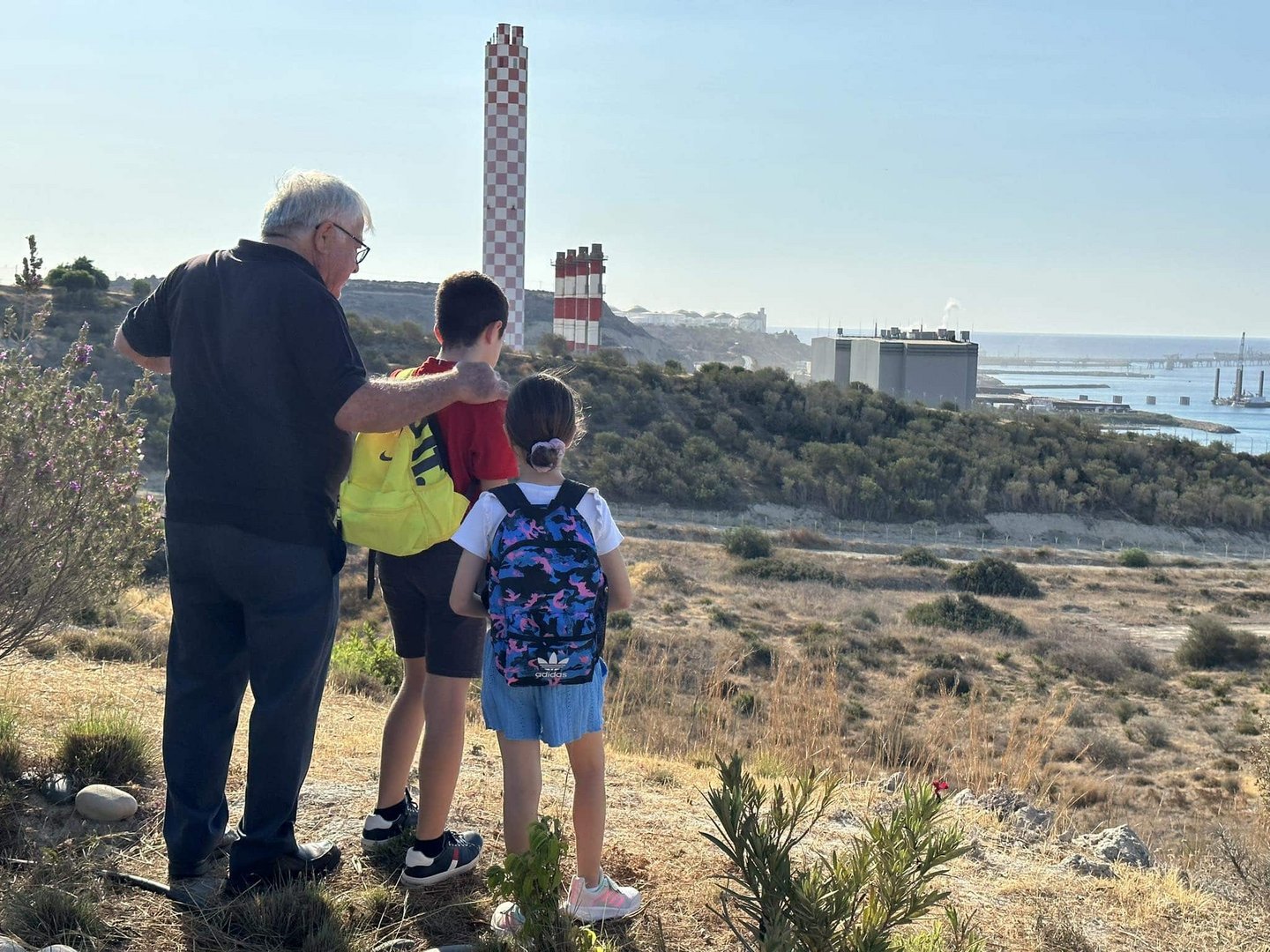President Nikos Christodoulides on Tuesday attended the annual memorial service held for the thirteen people who died in explosions at the Evangelos Florakis naval base in Mari twelve years ago.
“We have a responsibility to protect the citizens, to have the procedures and mechanisms in place so as to not experience such tragedies again,” the president said in statements following the service.
Responding to a question on whether enough had been done towards this in the intervening years, Christodoulides said, “for matters of safety there’s never enough, it is something that must be daily evaluated, upgraded and modernised.”
The president said that the losses in various incidents involving the national guard over the past several years are all the more tragic for having happened during peace time.
“But I consider that for Mari, the state ought to have done everything humanly possible to avoid it […] I feel a share of the responsibility […] the state, at the end of the day, is responsible to secure the safety of its citizens,” Christodoulides continued.
Three munitions containers exploded at the Mari site in the early hours of July 11, 2011. The most powerful blast happened around 5.30am, killing seven sailors and six firemen, and injuring dozens of others.
The annual memorial service was held at the site of the tragedy, attended by House speaker, Annita Demetriou, the minister of defence and the mayor of Limassol among others.
Afterwards, the president and speaker laid wreaths at the Heroes’ Monument at the premises of Emak, the special disaster rescue unit.
The Greens party, meanwhile, issued a statement for the occasion, saying that remembrance days and events are “not a pardon for any of the perpetrators”.
“The impunity that prevailed and still prevails, as if there are no responsibilities, give grounds to the voices of parents, wives, children, relatives and friends, who still demand justice,” the Greens’ statement said.
The Greens claimed that despite the fact that, at the time, an inquiry had identified root causes of the disaster, these were never examined, and the findings were “placed in closed drawers”.
Edek, for its part, stated that the fateful event had “plunged Cyprus into mourning and caused serious damage to military and energy infrastructures”.
“Apart from loss of lives […] the worst consequence is the critical blow to credibility of the institutions, due to hasty [and] thoughtless manipulations of [the government] at the time, that were unfortunately guided by ideology,” Edek stated.
The explosion in 2011, which aside from the fatalities also majorly destroyed the infrastructure of the nearby Vassiliko power station, was caused by munitions which had been haphazardly stored in 98 containers at the naval base for over two years. The destruction caused rolling power cuts.
The munitions had been confiscated in 2009 from a Cyprus-flagged ship enroute to Syria and were then stacked in an open space at the base and left exposed to the elements until the day of the explosion, despite repeated warnings about risks.
Following the disaster, the council of ministers declared the deceased as heroes who lost their lives in the line of duty, while Nicosia lawyer Polys Polyviou was appointed, as a one-man committee, to carry out an investigation into the circumstances that led to the blast and establish who was politically responsible.
Questions were raised as to whether it was possible for the investigator to apportion responsibility to government members who had appointed him. The issue of whether a one-man investigation was sound practice, as the investigator would remain unchallenged also arose as did insinuations that the investigation would be a sham, aimed at absolving Demetris Christofias, then president, of responsibility.
Polyviou took strong control over the public hearing and prevented lawyers representing relatives of the victims and witnesses from taking over proceedings, even threatening to conduct the hearing at his office, at one point.
TV cameras were banned under the reasoning that if the proceeding were filmed lawyers would be more inclined to interrupt, a decision about which some complained. As a compromise lawyers could submit questions in writing and, if considered relevant by Polyviou, they could ask them.
Polyviou found Christofias to be mainly responsible, while the respective foreign and defence ministers, Marcos Kyprianou and the late Costas Papacostas, were also found culpable. Christofias though, rejected the findings and accused Polyviou of overstepping his mandate.
Upon completion of the investigation, a three-judge panel at the time ruled that defence minister, Costas Papacostas, was responsible for safeguarding the containers and aware of the dangers posed by the way in which they had been stored, but failed to take action to prevent the explosion.
He was sentenced in July 2013 to five years in prison for manslaughter and causing death by reckless or dangerous acts.
Recently a case at the Nicosia district court was won in his family’s favour, validating the claim that the former defence minister was unjustly treated during his imprisonment.
The court ruled that the rejection of appeals by his family for his release due to seriously compromised health, lead to his death in September 2015.








Click here to change your cookie preferences